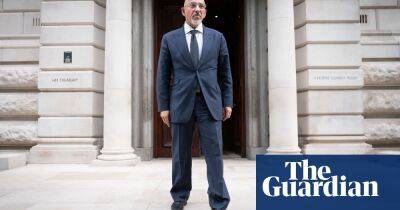Nadhim Zahawi’s corporation tax review raises more questions than answers
Nadhim Zahawi’s musings on business taxes may become irrelevant at any moment, but this week’s chancellor of the exchequer arrived with an idea to kick around: delay, reform or simply cancel his predecessor’s hike in corporation tax from 19% to 25%, due to take effect from next April.
That, at least, seemed to be the meaning of Zahawi’s many references to the tax in his day-one interviews. “I know that boards around the world, when they make investment decisions, they’re long term, and the one tax they can compare globally is corporation tax,” he told Sky News.
Well, yes, it is true that comparisons are easy when one looks at only one number. The point about Rishi Sunak’s approach, however, was that it was based on an analysis that the business taxation game is more complicated if the aim is to boost investment by companies, where the UK’s performance has been dire since 2016.
“It is unclear that cutting the headline corporation tax rate did lead to a step change in business investment; we need our future tax policy to be targeted and strategic,” said Sunak in a speech in March – virtually the only speech in his Covid-battered chancellorship that attempted to sketch a long-term economic plan for the UK.
Thus a major thrust of the Treasury’s thinking on business taxes, until now, has been how to design a successor to the “super deductions” – effectively big tax breaks on spending on equipment – that Sunak introduced as a two-year emergency measure in his spring 2021 budget. The CBI, for one, wants the deductions to be made permanent, seeing them as the surest way to lift the UK off the bottom of the G7 league table for business investment.
Data on the effectiveness of the deductions is mixed, it should be said: there has been
Read more on theguardian.com



















